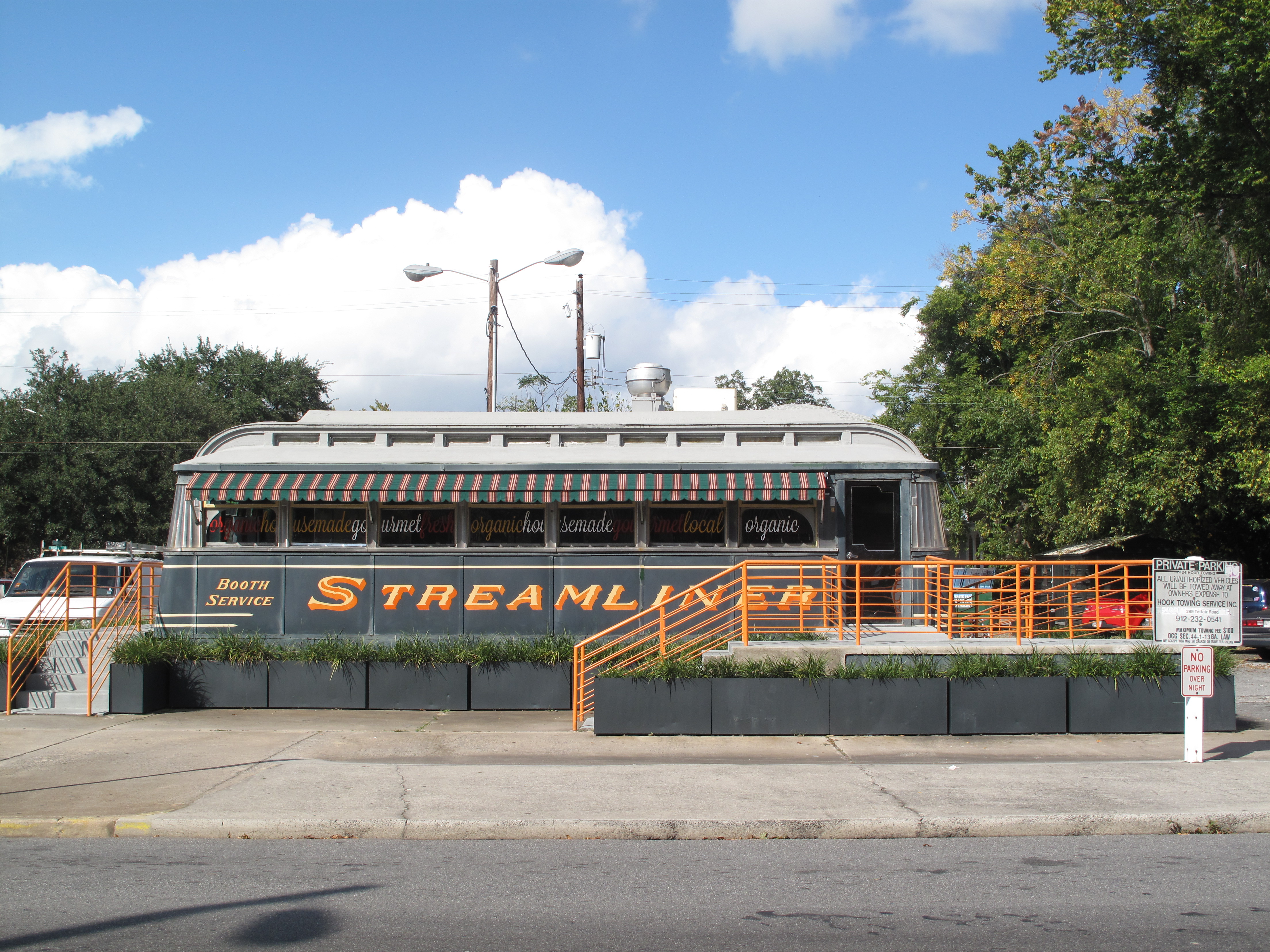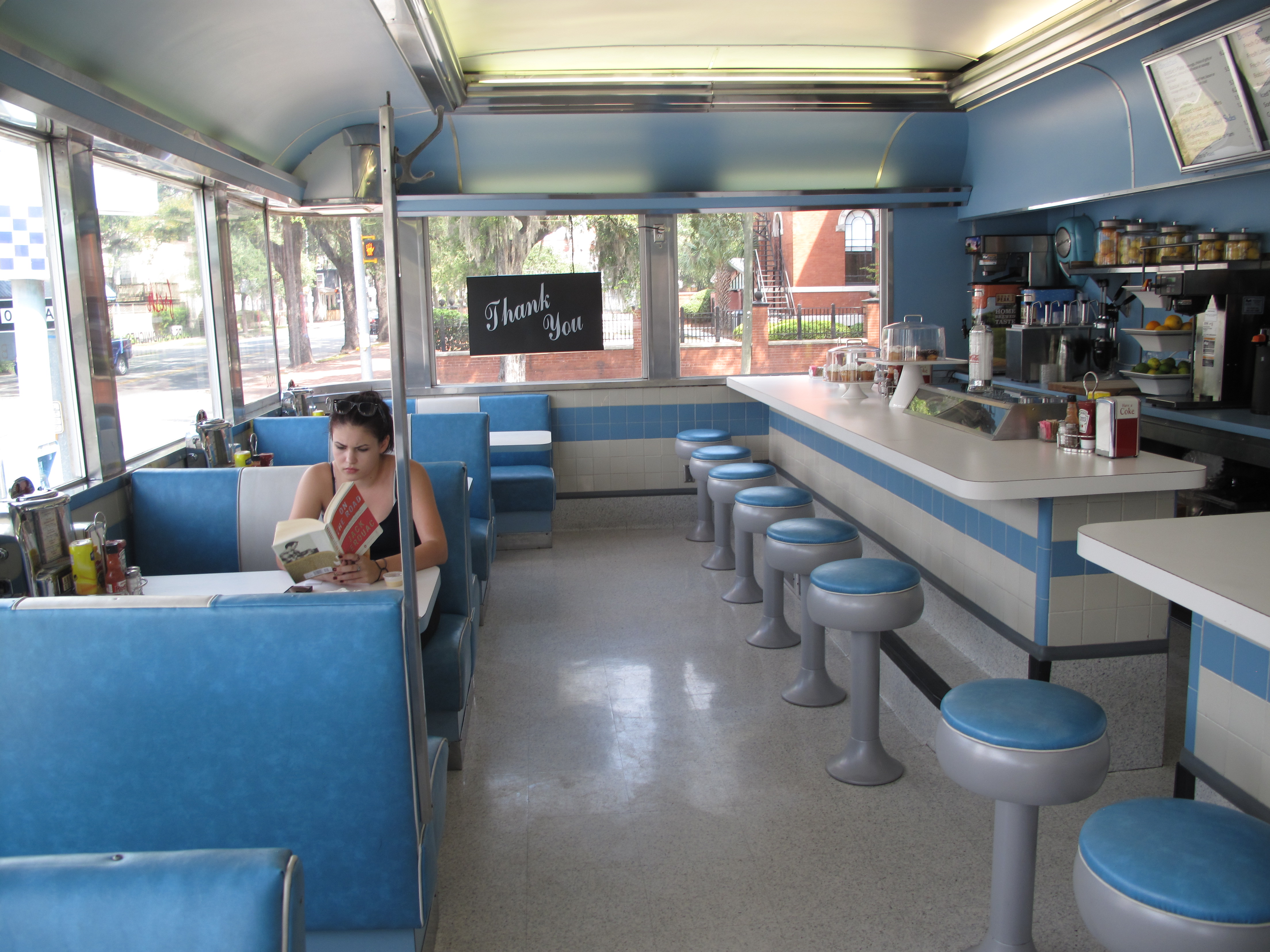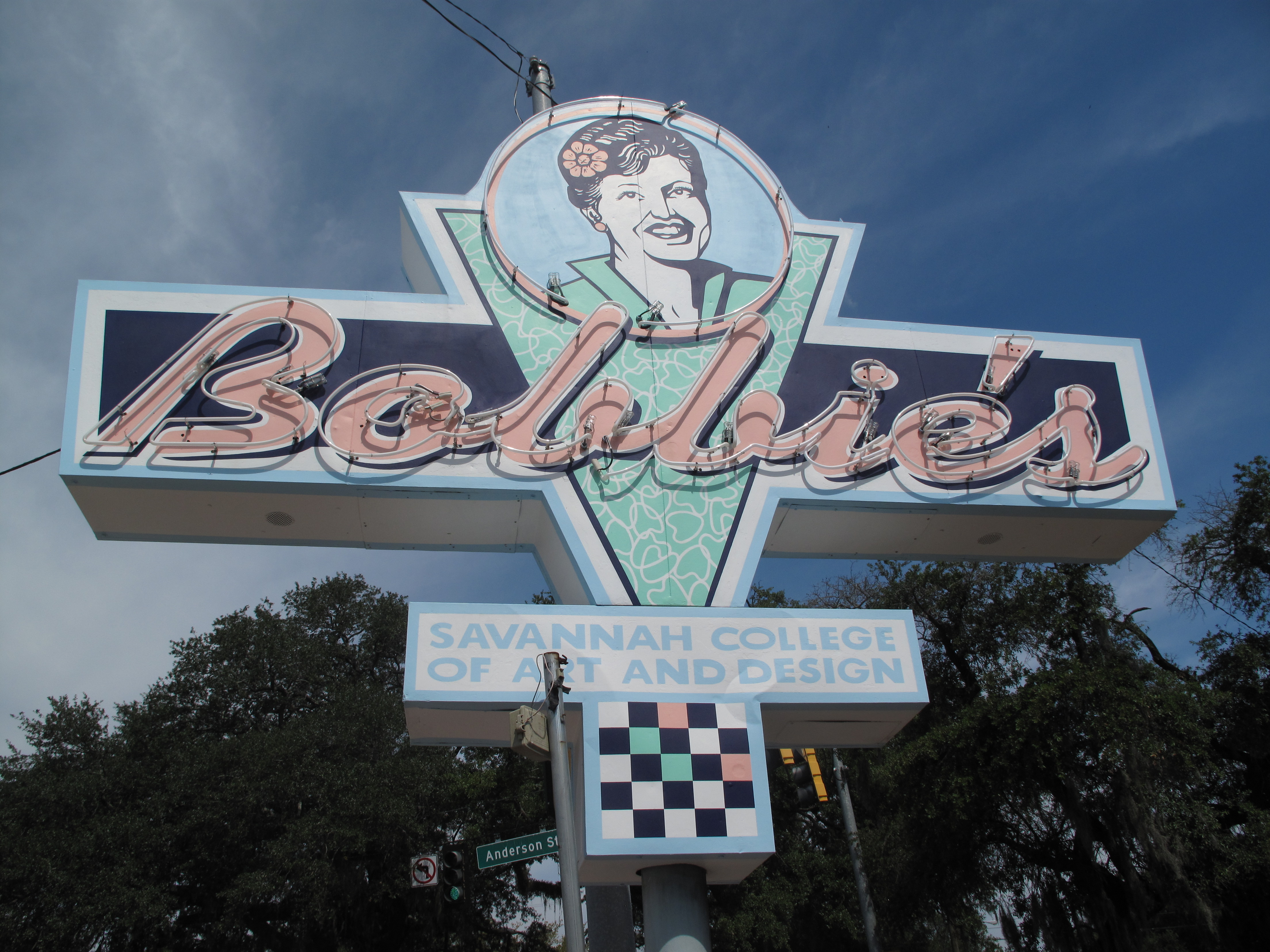In Savannah, Georgia, A Model Of Institutional Dining
We may receive a commission on purchases made from links.
Back when I was young and my heart was set on higher things, I developed a dislike for Sodexho Marriott. I was but a college student at New York University then and the world of private prisons was new to me. In a course entitled The Transnational Industrial Prison Complex and reading, I think, Lockdown America: Police and Prisons in the Age of Crisis, I had discovered that the joint venture between the French company Sodexho Alliance and the Marriott corporation provided meals — often subpar — to private prisons. And this made me mad, so mad that I protested, if I remember correctly, in front of NYU dining halls. I didn't realize it was Aramark, not Sodexho Marriott, that provided the meals there. [Of course, Aramark does a brisk trade with private prisons too.]
But I've always had a hostile relationship with college dining halls. They reek of chafing dishes, rubber gloves and social injustice. It never occurred to me that a school's food service provider could actually have a positive effect in its community. For years, Savannah College of Arts and Design was no different. They actually did use the services of Sodexho Marriott, conflating, at least edibly speaking, students and prisoners. But in 2011, they hired a company called Bon Appetit, which is based in Menlo Park, CA, aka Feel Good City. Bon Appetit — no relation to the magazine of the same name — in turn entered into a contract to operate all the SCAD dining facilities, which include a cafeteria called The Hive and two restored diners, Bobbie's and Streamliner.
When I visited The Hive, the dining hall that isn't open to the public, the chicken was labeled with the name of the farm from whence it came. [Savannah River Farms, to be exact.] The potatoes came from Gruber Farms in South Carolina. Eggs, scrambled at your omelette station, were from Flatland Farm in Sylvania, GA. The menus could have been lifted from Franny's in Brooklyn, what with the proud declamation of the ingredients' provenance. Little green dots indicates a dish is local. "It's part of our philosophy of farm-to-fork commitment," explains Eric Davidson, the general manager. "At least 20% of our produce and meat comes from within 150 miles." Of course, since college kids are idiots, by far the most popular part of The Hive was the cereal bar.
SCAD has been in the press a lot of late for adding to the local flavor. [Note: "local flavor" is a terrible phrase.] You can read about that in Departures Magazine. You don't even have to be rich; it's in front of the firewall. And much more could be said about how the steady influx of foodie New Yorkers has helped the nascent dining scene to grow. SCAD is related, to some degree, to both those phenomena, but by employing a food services company that directly enriches the local agriculture industry, SCAD is having an effect that is more than simply trickle down. It is from the ground up.
The effect is even more direct at the two diners that are open to the public: Bobbie's and Streamliner. Streamliner was bought, restored and shipped to Savannah by SCAD in 1990. Bobbie's, also restored, was extant in Savannah before SCAD bought it. Both maintain the original charm, original counters and stained glass windows at Streamliner; counters and booths at Bobbie's. Bobbie's, I might also note, has the city's best Fried Chicken sandwich, about which I have already written, and an orangeade, maybe the only one in the Western world, made with fresh orange juice. The waitress is old, wears a black vest and has a raspy voice. All as it should be.
So without making a comparison to NYU, one could say SCAD's food services situation is laudable. But if one does compare it to NYU's approach — not just in food services but in how the university interfaces with community concerns — the difference is dramatic. It serves to drive home exactly how ham-fisted and autocratic NYU has been. But it also points to how and what an institution like NYU might do in order to heal the vast breach in bonhomie between it and its home.
Instead of evicting restaurants and venues, perhaps it might restore them, opening them up to both the public and to the student body. What if the Bitter End hadn't become another shitty lecture hall but instead a music venue for Tisch students and others? [It is, after all, where Lady Gaga got her start.] What if NYU had taken over the now-shuttered University Diner, as opposed to letting her depart into diner heaven, where all eggs are over easy and the coffee truly bottomless? What if Aramark, instead of producing videos like this one, actually tried to source locally?
It's probably too late for me to take on the torch. I'm old now, disaffected and lazy. NYU is just a hazy memory and a monthly student loan payment. I'll leave this fight for a new generation of Joshua David Steins, all fired up, pimply, and yearning to burn off their sexual frustration in some social justice-y way. But if the future me wants an idea of things done right, I'd buy him a ticket to Savannah. After all, I know I'm good for it.
 The Streamliner is one of two restored diners that are part of the Savannah College of Art and Design. [/caption]
The Streamliner is one of two restored diners that are part of the Savannah College of Art and Design. [/caption]
 The SCAD diners are operated by Bon Appetit, a California-based company that works with local farms and purveyors.[/caption]
The SCAD diners are operated by Bon Appetit, a California-based company that works with local farms and purveyors.[/caption]
 The second of the two diners that are part of the SCAD dining program, Bobbie's.[/caption]
The second of the two diners that are part of the SCAD dining program, Bobbie's.[/caption]

More on Savannah on Food Republic:

